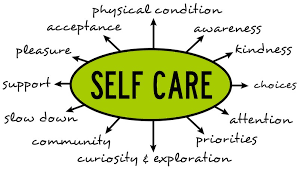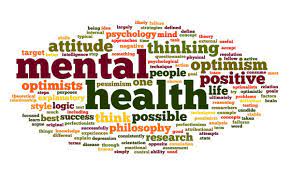In today’s hyperconnected world, where digital devices seamlessly integrate into every aspect of our lives, maintaining mental wellness has become increasingly challenging. The constant influx of information, social media pressures, and the demands of an always-on culture can take a toll on our mental health if not managed mindfully. In this article, we’ll explore the importance of prioritizing self-care in the digital age and discuss practical strategies for achieving mental wellness amidst the noise of modern life.
The Digital Dilemma: Impact on Mental Health

The digital revolution has undoubtedly brought numerous benefits, from instant communication to limitless access to information. However, it has also introduced new challenges to our mental well-being. Constant connectivity can lead to feelings of overwhelm, anxiety, and even depression. The pressure to keep up with social media trends, compare oneself to others, and maintain an online persona can exacerbate these issues.
Understanding the Need for Self-Care

In such a fast-paced and hyperconnected world, prioritizing self-care is not just a luxury but a necessity. Self-care encompasses activities and practices that promote physical, emotional, and mental well-being. It’s about carving out time for yourself, disconnecting from digital distractions, and nurturing your mind and body.
Strategies for Mental Wellness

- Set Boundaries: Establish clear boundaries around your digital usage. Designate tech-free zones or times during the day when you disconnect from screens and focus on being present in the moment.
- Practice Mindfulness: Incorporate mindfulness practices into your daily routine. Whether it’s meditation, deep breathing exercises, or mindful walking, taking moments to center yourself can help reduce stress and improve mental clarity.
- Prioritize Sleep: Ensure you’re getting adequate sleep by maintaining a consistent sleep schedule and creating a relaxing bedtime routine. Limit screen time before bed, as the blue light emitted by devices can disrupt sleep patterns.
- Engage in Physical Activity: Regular exercise is not only beneficial for physical health but also for mental well-being. Find activities that you enjoy, whether it’s yoga, jogging, or dancing, and make them a regular part of your routine.
- Cultivate Offline Connections: While digital connections are valuable, don’t neglect the importance of face-to-face interactions. Spend quality time with friends and loved ones, engage in meaningful conversations, and nurture your offline relationships.
- Limit Social Media Consumption: Be mindful of the time you spend on social media and its impact on your mental health. Consider unfollowing accounts that trigger negative emotions and practice moderation in your usage.
- Seek Professional Support: If you’re struggling with your mental health, don’t hesitate to seek support from a mental health professional. Therapy, counseling, or support groups can provide valuable resources and guidance.
Conclusion
In a world where digital distractions abound, prioritizing self-care is essential for maintaining mental wellness. By setting boundaries, practicing mindfulness, prioritizing sleep, engaging in physical activity, cultivating offline connections, limiting social media consumption, and seeking professional support when needed, we can navigate the challenges of the digital age with resilience and grace. Remember, your mental health matters, and taking proactive steps to care for yourself is the first step towards a happier and healthier life.


